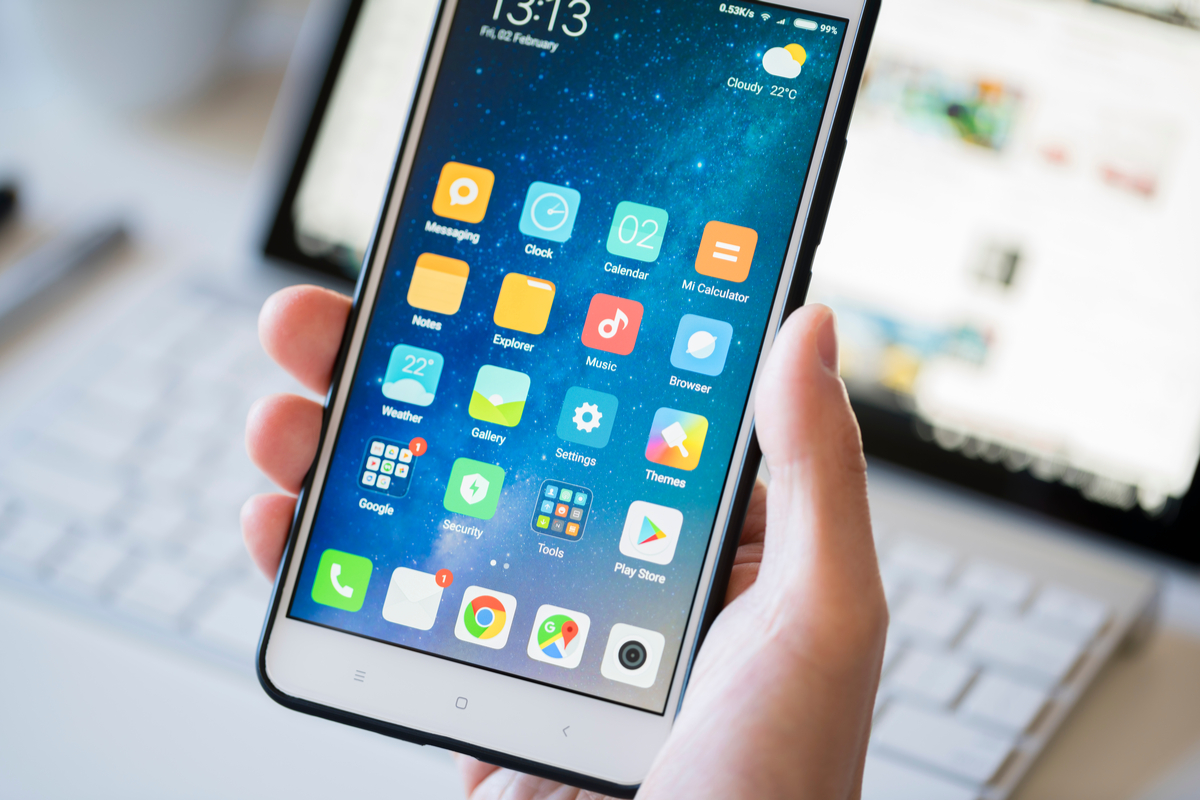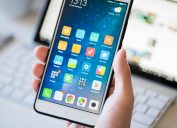Google Just Banned You From Doing This on Your Android
The tech giant made the announcement after a major security breach was discovered.
Whether we notice them or not, the smartphones we carry around in our pockets are constantly changing. In most cases, it's simply the result of tech companies adding new features or patching up a potential security vulnerability. But every so often, it may also involve removing something from your device for good. Read on to see what Google just banned from Android devices.
RELATED: If You Have an Android, You'll Be Barred From Doing This Starting Today.
Google has banned dozens of apps that were secretly harvesting data from users.

On March 25, Google banned dozens of apps from its Google Play download store, making it impossible for Android users to download them going forward. The tech giant pulled the software after it was alerted to an investigation that found that a company involved in the apps' development was using the programs to secretly harvest data from users, The Wall Street Journal first reported.
Apps running hidden code stole location data, email addresses, phone numbers, and more.

According to the research, a Panama-based company called Measurement Systems S. de R.L. was responsible for writing the malicious code and paying developers worldwide to include it in their apps as part of what's known as a software development kit (SDK). Once users downloaded apps running the code, the company—which has ties to a Virginia-based cyber intelligence and intelligence-intercept contractor—was able to collect scores of personal data, including information on exact location, personal data including email addresses and phone numbers, and even information on other nearby devices that were on the same network.
While it's common for app developers to use such data collecting methods to generate extra revenue on their products from third parties, the investigation found that Measurement Systems' techniques were far more invasive than the norm. The researchers believe that at least 60 million devices may have downloaded the now-banned programs that were secretly stealing information.
"This saga continues to underscore the importance of not accepting candy from strangers," Serge Egelman, one of the investigators and a researcher at the International Computer Science Institute and the University of California, Berkeley, told the Wall Street Journal. He added that the affected apps could "without a doubt be described as malware."
RELATED: For more up-to-date information, sign up for our daily newsletter.
Many different types of programs were affected, including QR code scanners, weather apps, and Muslim prayer apps.

According to the investigation, a wide range of apps that perform different functions used the Measurement Systems SDK, including a variety of Muslim prayer apps that had collectively been downloaded by Android users more than 10 million times. It was also hidden in a QR code scanner, a highway speed camera detection app, weather apps, and a remote WiFi mouse app, Forbes reports.
The company has stopped collecting data, but any downloaded apps still contain the hidden code.

The investigation concluded that any device that still has one of the affected apps downloaded could have data mined from it. However, the researchers found that Measurement Systems appeared to stop collecting data once their findings had been made public, The Wall Street Journal reported.
Google said it removed the affected apps from its Google Play store after investigators shared their findings with the company and it became clear the software ran afoul of data collection rules. However, developers could reapply to have their apps returned to the store after removing the Measurement Systems SDK from their coding, Scott Westover, a Google spokesman, told The Wall Street Journal, with some previously banned programs already reinstated as of April 7.
RELATED: Apple Just Issued This Major Warning for All iPhone and iPad Users.






















